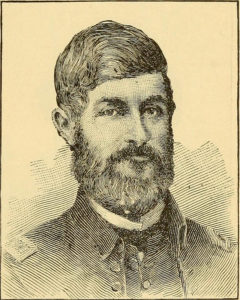CWGK Project Director Patrick Lewis writes a new piece in Nursing Clio about troubled Civil War veteran Robert Buffum.
[I]f some veterans can never escape the battlefield, Robert Buffum could never leave his cell. He spent more time behind bars of one sort or the other than he did as a free man after leaving the army. … The man continually reached out for help. And even when his society tried to do right by him, those treatments had the unintentional effect of moving him from one subconscious nightmare to another, lived one.
What does his experience in asylums and prisons mean for contemporary American veterans? Visit Nursing Clio for the full story and check out the CWGK reader and discussion packet, “Where I Now Stand” to bring the conversation to your classroom or community group.

